Supreme Court Term 2025-2026
We’re breaking down the cases we've asked the court to consider this term.
Latest Case Updates
Ongoing
Updated February 18, 2026
Ongoing
Updated January 26, 2026
Ongoing
Updated January 16, 2026
Ongoing
Updated January 9, 2026
Featured
Missouri
Feb 2026
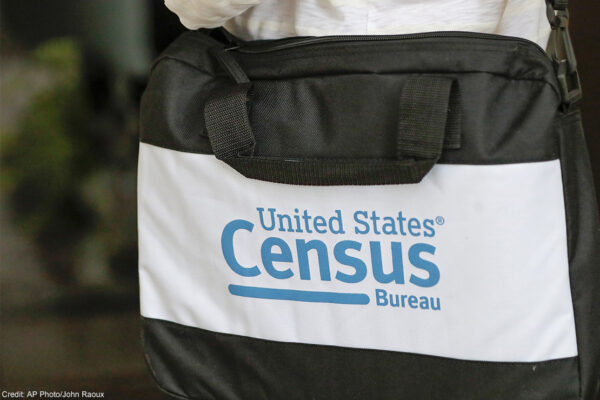
Voting Rights
Missouri v. U.S. Department of Commerce
A coalition of civil rights and immigrant-rights organizations has moved to intervene as defendants in a lawsuit that threatens to dismantle the Constitution‚Äôs long-standing requirement that the decennial census count all people living in the United States. Missouri asks the court to exclude undocumented immigrants and people living in the country on temporary visas from the census count used to determine congressional representation‚ÄĒan unprecedented move that would upend more than two centuries of constitutional practice.
Mississippi
Dec 2025
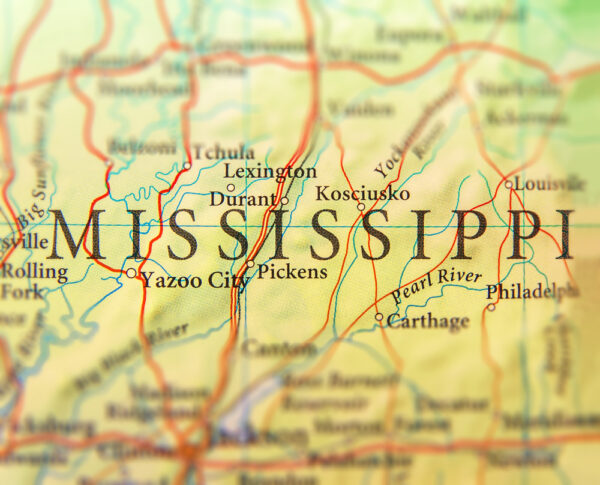
Voting Rights
White v. Mississippi State Board of Elections
District lines used to elect Mississippi’s Supreme Court have gone unchanged for more than 35 years. We’re suing because the current lines crack the Mississippi Delta and dilute the voting strength of Black Mississippians in state Supreme Court elections, in violation of the Voting Rights Act.
Court Case
Dec 2025

National Security
Human Rights
FOIA Case Seeking the Trump Administration’s Legal Justification for Deadly Boat Strikes
The Department of Justice‚Äôs Office of Legal Counsel (‚ÄúOLC‚ÄĚ) authored a legal opinion that reportedly claims to justify the Trump administration‚Äôs illegal lethal strikes on civilians in boats in the Caribbean Sea and eastern Pacific Ocean. Media reports indicate that, in addition to claiming that the strikes are lawful acts in an alleged ‚Äúarmed conflict‚ÄĚ with unspecified drug cartels, the OLC opinion also purports to immunize personnel who authorized or took part in the strikes from future criminal prosecution. Because the public deserves to know how our government is justifying these illegal strikes, and why they think the people who carried them out should not be held accountable, the ļž–” ”∆Ķ is seeking immediate release of the OLC legal opinion and related documents pursuant to the Freedom of Information Act.
U.S. Supreme Court
Dec 2025

Immigrants' Rights
Barbara v. Donald J. Trump
President Trump is attempting to undermine the promise of birthright citizenship to children born on U.S. soil. But the ļž–” ”∆Ķ and partners are fighting to protect the rights of citizens that are plainly stated in the Constitution, federal statute, and reaffirmed by the Supreme Court for more than a century. We‚Äôre arguing against the Trump administration in the Supreme Court and are confident we will win.
U.S. Supreme Court
Nov 2025

Voting Rights
Racial Justice
Allen v. Milligan
Whether Alabama’s congressional districts violate Section 2 of the Voting Rights Act because they discriminate against Black voters. We succeeded in winning a new map for 2024 elections which, for the first time, has two congressional district that provide Black voters a fair opportunity to elect candidates of their choosing despite multiple attempts by Alabama to stop us at the Supreme Court. Despite this win, Alabama is still defending its discriminatory map, and a trial was held in February 2025 to determine the map for the rest of the decade.
In May 2025, a federal court ruled that Alabama's 2023 congressional map both violates Section 2 of the Voting Rights Act and was enacted by the Alabama Legislature with racially discriminatory intent.
Washington, D.C.
Oct 2025

Voting Rights
League of Women Voters Education Fund v. Trump
On March 25, 2025, in a sweeping and unprecedented Executive Order, President Trump attempted to usurp the power to regulate federal elections from Congress and the States. Among other things, the Executive Order directs the Election Assistance Commission‚ÄĒan agency that Congress specifically established to be bipartisan and independent‚ÄĒto require voters to show a passport or other citizenship documentation in order to register to vote in federal elections. If implemented, the Executive Order would threaten the ability of millions of eligible Americans to register and vote and upend the administration of federal elections.
On behalf of leading voter registration organizations and advocacy organizations, the ļž–” ”∆Ķ and co-counsel filed a lawsuit to block the Executive Order as an unconstitutional power grab.
U.S. Supreme Court
Oct 2025
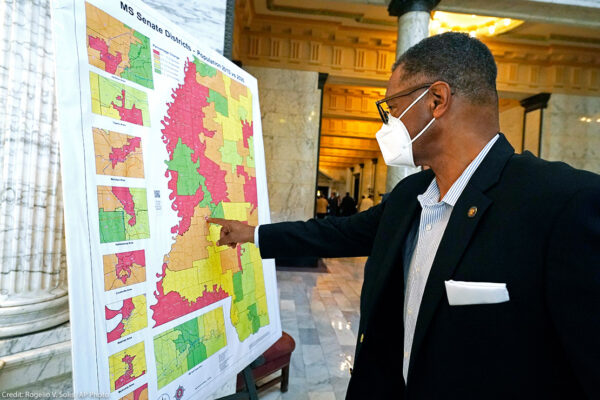
Voting Rights
State Board of Election Commissioners v. Mississippi State Conference of the NAACP
Mississippi has a growing Black population, which is already the largest Black population percentage of any state in the country. Yet. Black Mississippians continue to be significantly under-represented in the state legislature, as Mississippi’s latest districting maps fail to reflect the reality of the state’s changing demographics. During the 2022 redistricting process, the Mississippi legislature refused to create any new districts where Black voters have a chance to elect their preferred representative. The current district lines therefore dilute the voting power of Black Mississippians and continue to deprive them of political representation that is responsive to their needs and concerns, including severe disparities in education and healthcare.
U.S. Supreme Court
Oct 2025

Voting Rights
Louisiana v. Callais (Callais v. Landry)
Whether the congressional map Louisiana adopted to cure a Voting Rights Act violation in Robinson v. Ardoin is itself unlawful as a gerrymander.
Missouri
Sep 2025
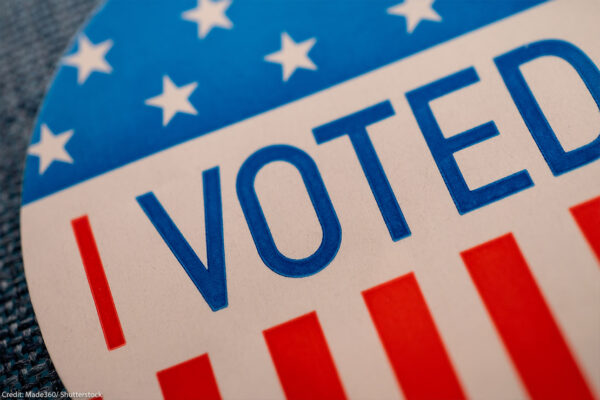
Voting Rights
Wise v. Missouri
In unprecedented fashion, the State of Missouri has redrawn the district lines used for electing members of Congress for a second time this decade. These new district lines are gerrymandered and will harm political representation for all Missourians, particularly Black residents in Kansas City, who have been divided along racial lines.
All Cases
1,676 Court Cases
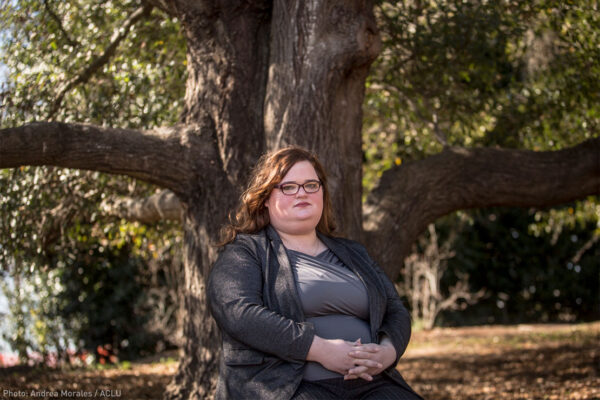
Alabama
Dec 2024
LGBTQ Rights
Corbitt v. Taylor
The ļž–” ”∆Ķ and ļž–” ”∆Ķ of Alabama filed a federal law suit against officials of the Alabama Law Enforcement Agency (ALEA) for depriving transgender people of driver licenses that reflect their gender. The lawsuit states that the Alabama government has violated the privacy, due process, free speech, and equal protection rights of Darcy Corbitt, Destiny Clark, and a third, unnamed plaintiff.
Explore case
Alabama
Dec 2024

LGBTQ Rights
Corbitt v. Taylor
The ļž–” ”∆Ķ and ļž–” ”∆Ķ of Alabama filed a federal law suit against officials of the Alabama Law Enforcement Agency (ALEA) for depriving transgender people of driver licenses that reflect their gender. The lawsuit states that the Alabama government has violated the privacy, due process, free speech, and equal protection rights of Darcy Corbitt, Destiny Clark, and a third, unnamed plaintiff.

Maryland Supreme Court
Dec 2024
Criminal Law Reform
Roland Branch v. State of Maryland
This petition to the Supreme Court of Maryland asked the court to reconsider its adherence to Whren v. U.S., 517 U.S. 806 (1996), which declared that a traffic stop undertaken for pretextual reasons does not violate the Fourth Amendment to the U.S. Constitution so long as the police have probable cause to believe that a traffic violation occurred. The ļž–” ”∆Ķ, alongside the ļž–” ”∆Ķ of Maryland, filed an amicus brief in support of the defendant‚Äôs petition, in which the ļž–” ”∆Ķ argued that the court should take up the question of whether pretextual stops violate the Maryland Constitution. In September 2024, the Court denied the petition.
Explore case
Maryland Supreme Court
Dec 2024

Criminal Law Reform
Roland Branch v. State of Maryland
This petition to the Supreme Court of Maryland asked the court to reconsider its adherence to Whren v. U.S., 517 U.S. 806 (1996), which declared that a traffic stop undertaken for pretextual reasons does not violate the Fourth Amendment to the U.S. Constitution so long as the police have probable cause to believe that a traffic violation occurred. The ļž–” ”∆Ķ, alongside the ļž–” ”∆Ķ of Maryland, filed an amicus brief in support of the defendant‚Äôs petition, in which the ļž–” ”∆Ķ argued that the court should take up the question of whether pretextual stops violate the Maryland Constitution. In September 2024, the Court denied the petition.

North Carolina Supreme Court
Dec 2024
Criminal Law Reform
State v. Wright
This case in the North Carolina Supreme Court involves the question of whether the police violated the U.S. Constitution when they searched the defendant, Mr. Wright‚Äôs, backpack even after he repeatedly said no to the search requests. The ļž–” ”∆Ķ alongside the ļž–” ”∆Ķ of North Carolina filed an amicus brief arguing that the search was unconstitutional because Mr. Wright‚Äôs eventual ‚Äúconsent‚ÄĚ was the result of police coercion. Our brief urges the court to consider the totality of the circumstances that make one more susceptible to coercion, including race and poverty.
Explore case
North Carolina Supreme Court
Dec 2024

Criminal Law Reform
State v. Wright
This case in the North Carolina Supreme Court involves the question of whether the police violated the U.S. Constitution when they searched the defendant, Mr. Wright‚Äôs, backpack even after he repeatedly said no to the search requests. The ļž–” ”∆Ķ alongside the ļž–” ”∆Ķ of North Carolina filed an amicus brief arguing that the search was unconstitutional because Mr. Wright‚Äôs eventual ‚Äúconsent‚ÄĚ was the result of police coercion. Our brief urges the court to consider the totality of the circumstances that make one more susceptible to coercion, including race and poverty.

Florida Supreme Court
Dec 2024
Capital Punishment
Michael Jackson v. State of Florida
This case gets at the very heart of our right to a jury trial. Traditionally and historically, the right to a jury trial has promised that a person could not be punished unless every single person in a group of one‚Äôs peers agreed, by jury vote, that that was the just outcome. However, Florida feels differently. When it comes to the death penalty, Florida is one of only two states that has decided that the ‚Äúright to a trial by jury‚ÄĚ does not guarantee that a person will be sentenced to death by a unanimous jury. Instead, in Florida, a person can be sentenced to die even if four people on their jury think they should live. The state requires just eight of twelve jury votes for a death sentence, which not only disproportionately affects people of color, but the very ideals at the heart of the rights of citizenship.
Explore case
Florida Supreme Court
Dec 2024

Capital Punishment
Michael Jackson v. State of Florida
This case gets at the very heart of our right to a jury trial. Traditionally and historically, the right to a jury trial has promised that a person could not be punished unless every single person in a group of one‚Äôs peers agreed, by jury vote, that that was the just outcome. However, Florida feels differently. When it comes to the death penalty, Florida is one of only two states that has decided that the ‚Äúright to a trial by jury‚ÄĚ does not guarantee that a person will be sentenced to death by a unanimous jury. Instead, in Florida, a person can be sentenced to die even if four people on their jury think they should live. The state requires just eight of twelve jury votes for a death sentence, which not only disproportionately affects people of color, but the very ideals at the heart of the rights of citizenship.

Virginia
Dec 2024
National Security
Trabelsi v. Crawford, et al. ‚Äď Lawsuit Challenging Unlawful Detention and Inhumane Treatment of Acquitted Man
Our client, Nizar Trabelsi, is in the United States against his will. The federal government brought him here from Belgium more than a decade ago and charged him with terrorism-related crimes. At trial, the government’s case failed: a federal jury found Mr. Trabelsi not guilty. But instead of allowing Mr. Trabelsi to return to Belgium after his acquittal, the United States placed him in highly restrictive immigration detention and began an ongoing effort to force him to Tunisia, where he was born and where he will very likely be tortured.
Mr. Trabelsi’s detention violates the Constitution, immigration law, and the extradition treaty between the United States and Belgium. Through this lawsuit, he seeks to return to Belgium, and he demands an immediate improvement of his detention conditions.
Explore case
Virginia
Dec 2024

National Security
Trabelsi v. Crawford, et al. ‚Äď Lawsuit Challenging Unlawful Detention and Inhumane Treatment of Acquitted Man
Our client, Nizar Trabelsi, is in the United States against his will. The federal government brought him here from Belgium more than a decade ago and charged him with terrorism-related crimes. At trial, the government’s case failed: a federal jury found Mr. Trabelsi not guilty. But instead of allowing Mr. Trabelsi to return to Belgium after his acquittal, the United States placed him in highly restrictive immigration detention and began an ongoing effort to force him to Tunisia, where he was born and where he will very likely be tortured.
Mr. Trabelsi’s detention violates the Constitution, immigration law, and the extradition treaty between the United States and Belgium. Through this lawsuit, he seeks to return to Belgium, and he demands an immediate improvement of his detention conditions.
